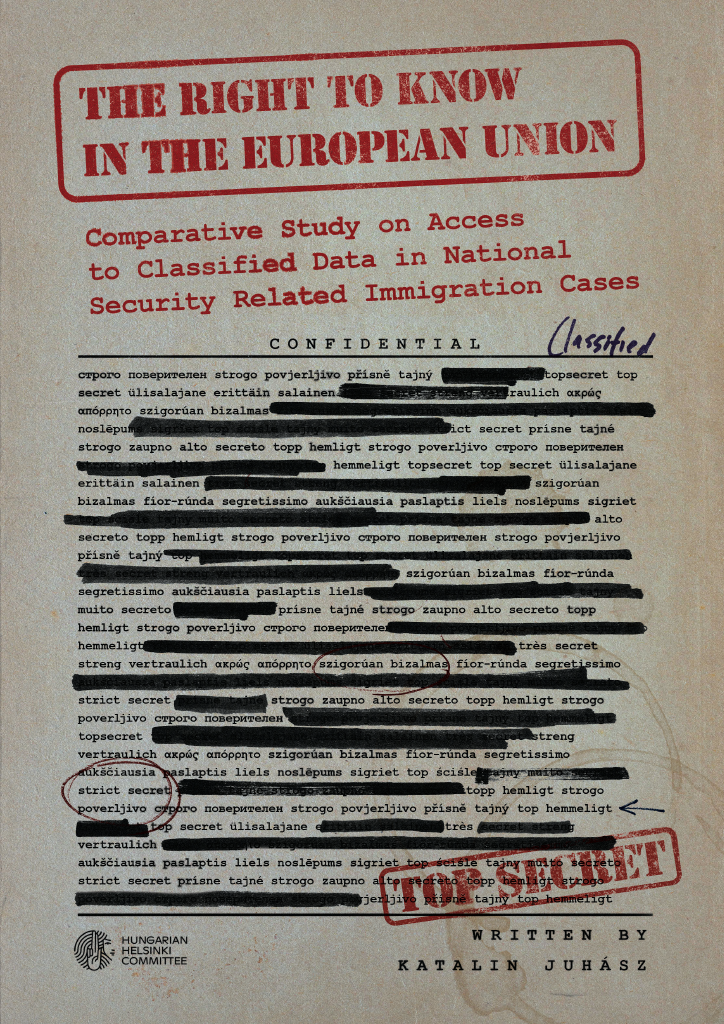
The Right to Know in the European Union: Comparative Study on Access to Classified Data in National Security Related Immigration Cases
A gap-filling comparative and comprehensive research study on how the issue of applicants’ right to know and to access classified information is regulated in immigration-related proceedings in the Member States of the European Union, and whether national frameworks are in line with European standards.
Translation is available for this content
Váltás magyarraState security considerations play a key role in immigration-related proceedings: a foreign national who poses a threat to national security is not granted the right to enter or reside from any EU Member State concerned. The threat to national security is assessed by the administration, on the basis of data which are generally classified and to which the foreign national has access only in exceptional cases and to a certain extent. The Court of Justice of the European Union (CJEU) and the European Court of Human Rights (ECtHR) stipulated certain minimum safeguards concerning these national security cases with regard to the right to an effective remedy. Despite the safeguards laid out by the courts, national practices of the Member States of the European Union vary and in numerous cases do not align with the jurisprudence of the courts. Recently, however, no comprehensive research has been conducted as to how the issue of applicants’ right to know and their right to access classified information are regulated in the Member States of the European Union, and whether national frameworks are in line with European standards. This comparative pan-European mapping study aims to fill this gap. The study gives a comparative analysis of the laws and practices of EU Member States concerning their compliance with the standards laid out by the ECtHR and CJEU jurisprudence on invoking national security grounds in immigration cases, as well as the scope and effectiveness of the remedy provided against administrative decisions in such cases.
This study was written by Katalin Juhász, legal officer of the Hungarian Helsinki Committee, in the framework of ‘The Right to Know 2’ project funded by the European Programme for Integration and Migration (EPIM). The study is a result of an unparalleled international cooperation and is based on national research conducted by national experts identified for the purpose of this study. The study covers all European Union Member States, with the exception of Denmark and Italy.
Please read the study here.